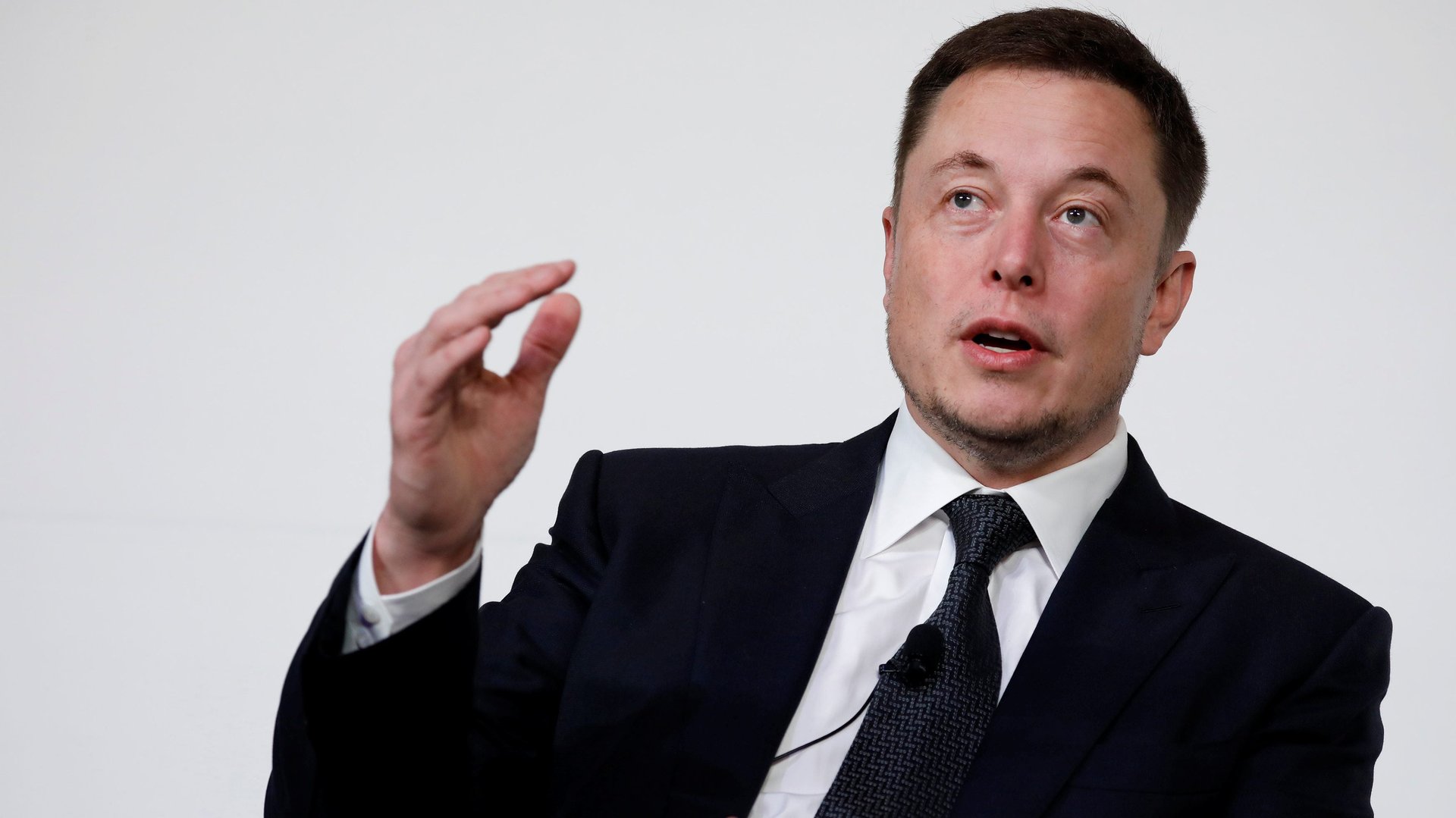What Elon Musk doesn’t understand about public transit hurts everyone
Recently, Elon Musk shared his perceptions during a tech industry conference that public transit is both inconvenient and dangerous. “It’s a pain in the ass,” he said. “That’s why everyone doesn’t like it. And there’s like a bunch of random strangers, one of who might be a serial killer, OK, great. And so that’s why people like individualized transport, that goes where you want, when you want.”


Recently, Elon Musk shared his perceptions during a tech industry conference that public transit is both inconvenient and dangerous. “It’s a pain in the ass,” he said. “That’s why everyone doesn’t like it. And there’s like a bunch of random strangers, one of who might be a serial killer, OK, great. And so that’s why people like individualized transport, that goes where you want, when you want.”
Several commentators—including myself, along with transit network design expert Jarrett Walker—called out his views as an uninformed elitist, perched atop his high-tech empire:
Musk presents a dilemma for many mobility advocates—as do other transportation tech sector-disruptors, such as the Transportation Network Companies (TNCs) Uber and Lyft: their ideas offer clever innovations to overcome network gaps and sluggish bureaucracy, but are rooted in profit motives that run counter to transit’s primary aim of affordable accessibility.
Musk’s dig at transit raises our industry’s dander when a billionaire (whose Boring Company is currently digging a privately-funded tunnel from his home to his corporate headquarters in Hawthorne, Calif.) scoffs at a resource that millions of less-fortunate people—as well as vast numbers of people of color, women and people with disabilities—rely on every day to get to work, healthcare, school, childcare and myriad other destinations.
Even as this audience applauds Musk’s creative ventures ranging from SpaceX and The Boring Company to manufacturing low-cost solar panels, their heartburn simmers as he slanders a conveyance he rarely has experienced. Or as he waives a magic wand of fiat to brush away land acquisition challenges, environmental and legal requirements and organized, local political opposition that have stymied numerous public infrastructure projects. Particularly infuriating was Musk’s boastful Tweet last July that he had received “verbal govt. approval” for a Hyperloop tunnel from New York to Washington, DC, as there is no such instant approval process. Even the Trump Administration—itself never short on bravado—publicly rebuked Musk’s claim.
Similarly, transit proponents pine for the day when the on-demand, trip-scheduling apps developed by the TNC sector can effortlessly coordinate door-to-door trips and fare payment across a variety of modes, but cringe at their dearth of vehicles accessible to people with disabilities. They fume as surge pricing shuts out all but the disposable income of the well-off. And they throw up their arms in disgust as investors shrug off TNC earnings statements that report billions in annual losses, but politicians deride transit investments and systems scrimp and beg for every cent in their operating budgets.
The breathless coverage of wiz-bang technology and the blustery commentary of Silicon Valley gurus show a fundamental disconnect with lives of less-affluent Americans, particularly those in rural communities or inner city neighborhoods. Levels of poverty, chronic health conditions, education, affordable housing and other measures of social isolation run parallel in both geographic cohorts.
Sure, Pittsburgh might be testing a new autonomous vehicle and Portland could be rolling out a new streetcar line, but as the old Broadway saying goes, how does it play in Peoria?
We genuinely bear Musk and his peers no ill will as they test out Hyperloop tubes in the Nevada desert or as The Boring Company mines new tunnel construction efficiencies in the soil of Southern California. This is worthwhile technological progress and assumes fiscal risk.
The problem is Hyperloop’s pods—projected to hold no more than 12 seats—just can’t move that many people. Assuming it ever actually carries anyone (it hasn’t yet), there are only so many projectiles that can be hurled through a pipe, no matter how fast they’re going. Similarly, his plan to glide private automobiles on roller skate-like platforms in tunnels dug by The Boring Company only shifts single-occupant vehicles underground at conventional travel speeds. Musk’s supporters claim they’ll just bore as many tunnels as needed to provide unlimited capacity. If you believe that, I have a ditch in Boston to sell you.
When capacity is limited, access to snazzy new infrastructure will be governed by market pricing. And that’s fine for privately-constructed and operated assets, but talk to commuters on I-66 in northern Virginia as they face one-way tolls maxing out over $40.
Musk’s suggestion that transit has no place in his sci-fi future turns a blind eye to the mobility needs of the less fortunate. We believe affordable ways to travel are a fundamental right society needs to protect and that transit has proven itself the most effective way to do so.
My organization—the Community Transportation Association of America (CTAA)—is helping community and public transportation adapt and thrive in emerging landscape of mobility disruptors: Musk and his gadgets, TNCs, autonomous vehicles and Mobility As A Service. Public transit’s future is rooted in the same fundamental premise that founded the first streetcar lines more than a century ago: moving people, affordably, reliably and efficiently. The latest edition of our quarterly magazine, DigitalCT, presents an array of ideas—from transit drivers as caregivers to partnering with TNCs—allowing transit providers to be intentional about their long-term vitality.
We hope that’s a direction that even Musk would find encouraging.